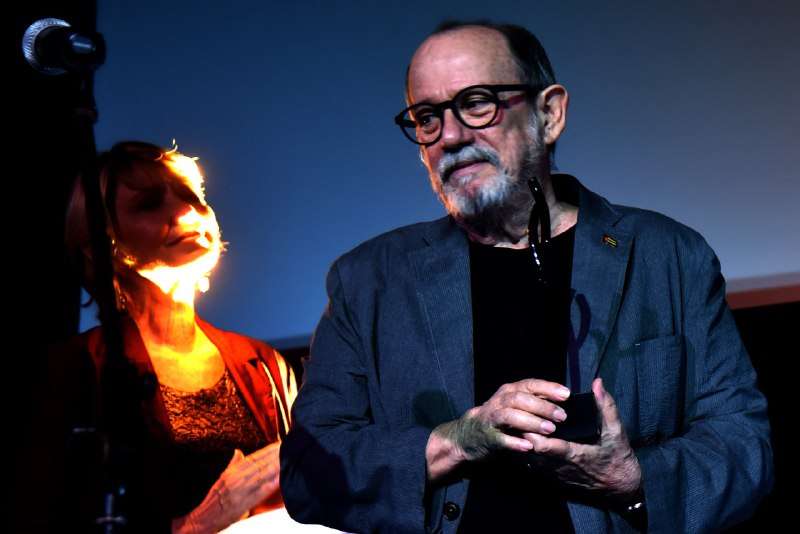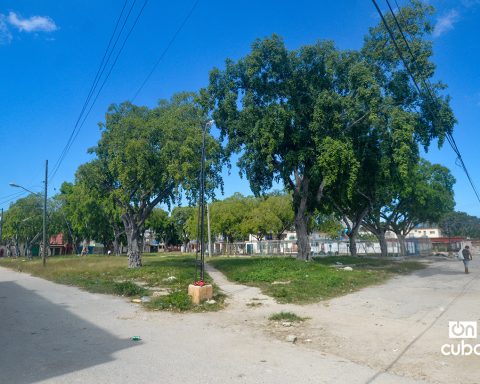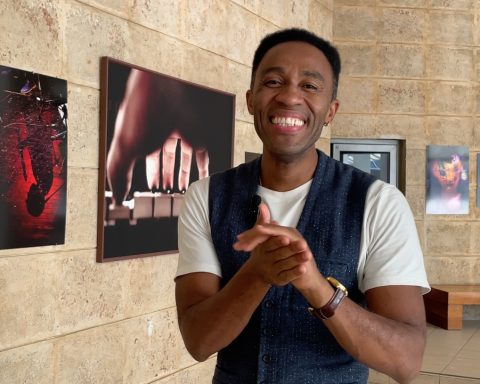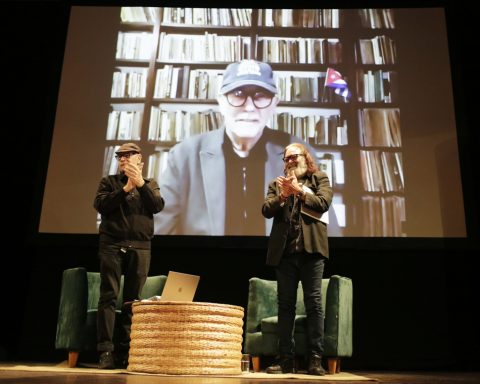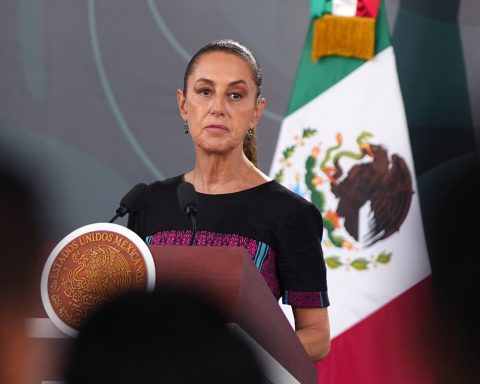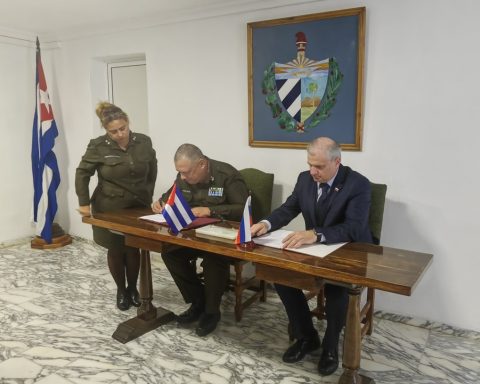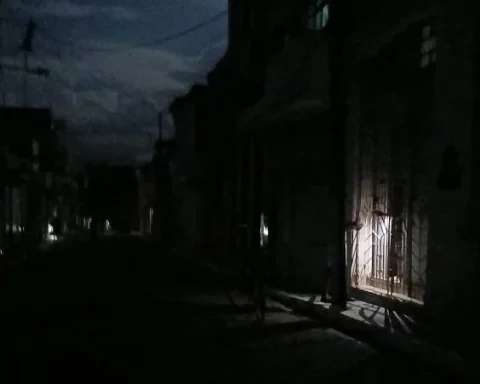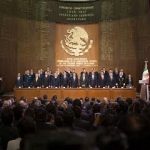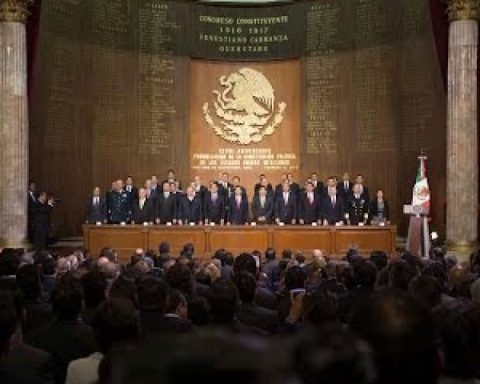The Cuban singer-songwriter Silvio Rodríguez was awarded this Friday with the Coral de Honor at the awards gala of the International Festival of New Latin American Cinema in Havana for his contributions to soundtracks of Cuban cinema, patented in classics such as “El hombre de Maisinicú” and Elpidio Valdes.
The gala was the culmination of the Festival, which since December 1 has screened hundreds of films, and the singer-songwriter caused the biggest wave of applause of the night when he went up to collect the award and address a few words to the public.
“The revolution is lucidity and not complacency,” said the musician, who wished that Cuban cultural institutions “be increasingly wise and inclusive” to bring the country closer to “the fullness that we usually dream of.”
Silvio recalled in a brief address – and quoted one by one – all the members, “present and absent”, of the nueva trova, the musical movement he founded 50 years ago together with the recently deceased singer-songwriter Pablo Milanés.
Milanés, for his part, received the greatest applause at the opening gala of the Havana Film Festival, when a heartfelt tribute was paid to him by the organization shared by the attendees, mainly from the world of the arts.
The Bolivian “El gran movimiento” won the main awards of the night, including Best Fiction Feature Film and Best Director, which went to Kiro Ruso. In addition, they won the Best Film, Sound and Editing sections.
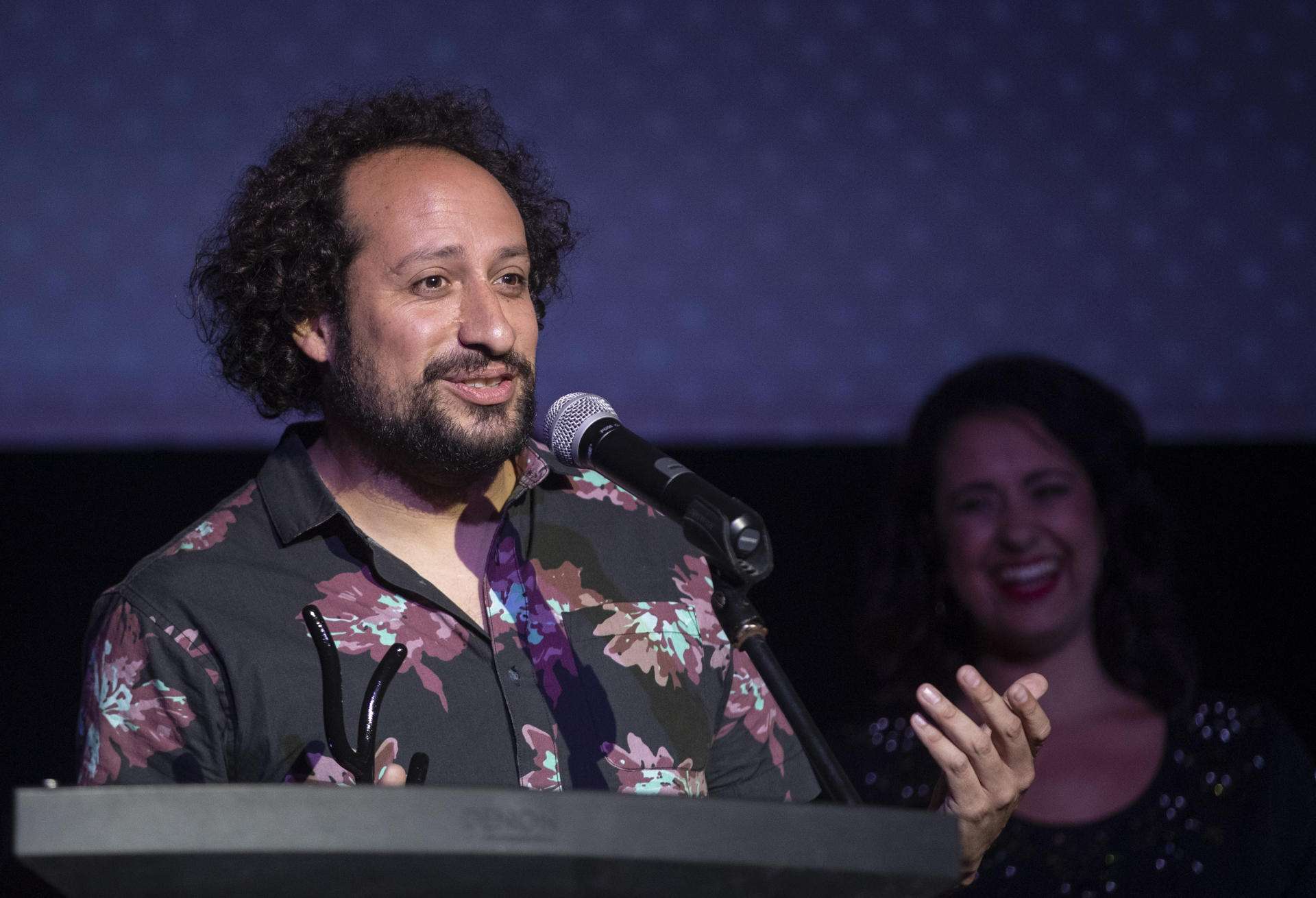
The film “Regra 34”, a Brazilian and French co-production directed by Julia Morat, won a special Coral from the jury in the Fiction Feature Film category.
The emblematic Argentine actor Ricardo Darín was awarded Best Actor for his role in “Argentina, 1985”, while Julia Chávez won the Coral for Best Actress for “El otro Tom”, from Mexico.
The film “Argentina, 1985”, which was screened at the opening gala, won Best Art Direction, Best Screenplay and Best Male Performance, as well as the Signis, awarded by the Catholic World Communication Association.
For its part, “Mato seco em chamas”, a co-production between Brazil and Portugal, won the prizes for Original Music and Photography.
The Coral Short Film Award went to the Brazilian film “Una historia de obreras”, by Nina Kopko, while the film “Amparo”, made between Colombia, Sweden and Germany, won in the First Feature category.
The Paraguayan-Argentine co-production “Eami”, directed by Paz Encina, won the Coral in the category of best documentary feature film, and “Abisal”, by Alejandro Alonso, made between Cuba and France, won the award for Documentary Short Film.
In this edition, the special prizes went to “Cadê Heleny”, by Esther Vital (Brazil-Spain) and the Guatemalan “El silencio del topo”, by Anais Taracena.
Among the acknowledgments, the award of the new Arrecife award to the Colombian and French production film “Un varón”, by director Fabián Hernández, was highlighted, as the jury considered that it was the Festival’s work that best reflects the reality of the LGBTIQ+ community.

Several first works were also awarded, including the Chilean-Argentine “1976”, by Manuela Martelli, and “Amparo”, by director Simón Mesa Soto, a production from Colombia, Sweden, Germany and Qatar.
The 43rd edition of the Festival, the first in a traditional format after two years of the pandemic, included 185 works in the official selection, including fiction short films, debut films, documentaries and animated works.
This year a total of 15 works competed for the award for best feature film and as many for debut films, 17 documentaries, 15 fiction short films, ten documentaries in short film format, 29 animated films, 32 unpublished scripts and 30 posters.
The most represented countries among the selected films were Argentina, Mexico and Brazil, although the organizers highlighted the presence of films from Bolivia and Costa Rica. Beyond the American continent, Spain, France and Portugal are also present.
The festival included a series of parallel events, among which the tribute to Cuban filmmaker Nicolás Guillén Landrián (1938-2003) stood out, which included the projection of some of his restored works and a documentary about his life, by Ernesto Daranas.
With information from EFE
